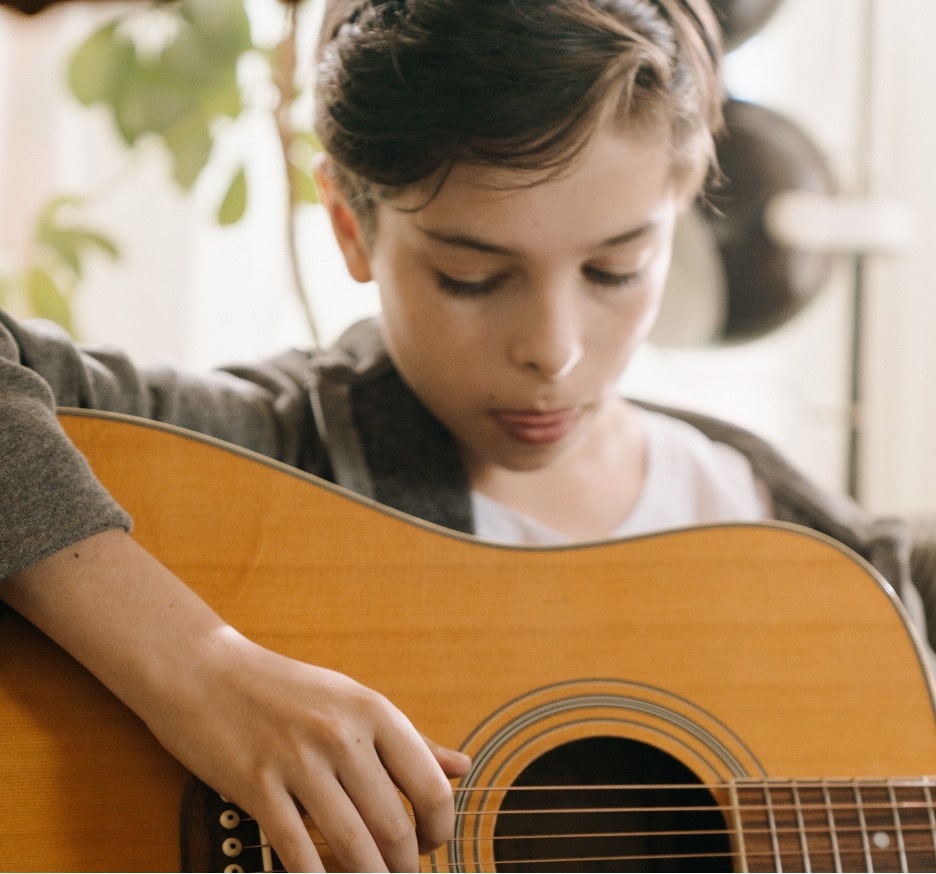Learning and Literacy Through Music

By Tina Martin
While playing music and reading are different activities, several studies suggest music promotes learning. More specifically, music helps children read, and music education is important to your child’s overall education. Let me present you with some tips and resources that can help encourage a passion for music.
Why reading is important
The ability to read is one people often take for granted. But, for the 30 million adults in the US who struggle with literacy, it’s a big deal. According to Do Something, in the United States, 1 in 4 children grow up without learning to read. 2 out of 3 students who cannot read by the end of 4th grade, will likely end up in jail or on welfare. In the UK, statistics aren’t any better, with 28 percent of the adult population experiencing profound reading deficits. Learning to read at an early age opens up a whole world of possibilities and gives children the chance to grow into adults who appreciate art, history, different cultures, and a variety of perspectives.
Music is a fun way to encourage literacy in children who don’t read for pleasure. According to the National Association for Music Education, music lessons motivate reading by helping students develop proficiency and giving them the tools they need to learn to evaluate, critique, create, and analyze multimedia text.
Tips for encouraging musical ambition
Children may be intimidated by playing an instrument or singing, especially in front of a crowd. It’s not uncommon for children to participate in music class in school, only to avoid showing up for evening play performances. As a parent, you are in a unique position to encourage your child’s musical ambition. The following tips can help you get your child on the path toward better grades and increased confidence:
● Give them their space. Your budding musician will need a lot of practice and creating a dedicated practice space can reinforce the importance of putting in the time. Decorate the space with music-inspired art and consider a touch-up. If you don’t want to mess around with cans of paint, today’s wallpaper is easier to apply, easier to remove, and there are endless patterns to choose from. You can even use the online tool to create your own designs.
● Let them experiment. Choosing the right instrument depends on your child’s music genre preference, age, who their musical role models are, and their general taste.
Give them access to different types of instruments until they find one they enjoy.
● Write songs with them. One of the most obvious ways that music can improve literacy is through songwriting. When your child feels a creative streak coming on, sit down together and come up with a few verses. Once they get in the groove, back away and let them focus on writing lyrics without distractions.
● Provide an audience. Children love to have their accomplishments praised in a safe environment. When they approach you with a new song or skill they’ve mastered, make that your priority. If you can’t break away at the moment they want you, schedule a concert at home for the family. If you have the space, this DIY stage is the perfect way to put your child in the spotlight.
As Zenbusiness notes, self-confidence doesn’t happen overnight. If they make mistakes along the way, keep self-criticism from creeping in by encouraging them to push forward. Tell them that it takes time to learn an instrument, and to not give up.
Not all children learn to read in the same way. Even among siblings, learning differences can be drastic. One child may pick up writing simply by playing around on the computer. Another may need more direct encouragement. Explore different options until you find what works best for your child and their specific needs. Music can get you there in a fun and rewarding way.
Check out Tina’s website at https://www.ideaspired.com/
Photo credit: Image via Cottonbro at Pexels.com
